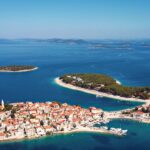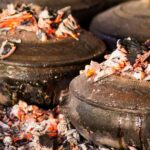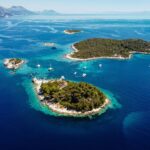It would be such a shame to visit island Korcula, and to go back home without a bottle of locally produced, extra virgin olive oil. As nutriment rich in healthy ingredients, olive oil is the basis of Mediterranean cuisine, and you will hardly find a local dining table without at least one bottle on it. There are many positive effects of olive oil’s healthy ingredients, so we can really ask ourselves: is the olive oil secret of longevity for people in the Mediterranean?
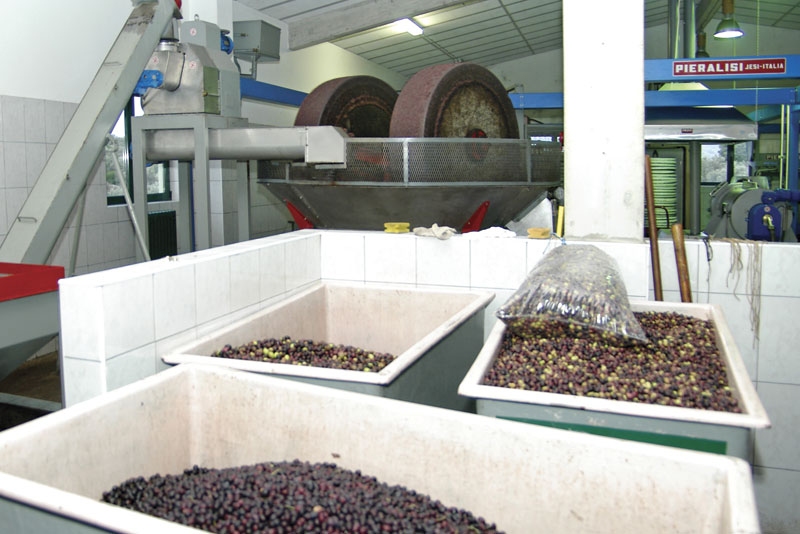
In recent years, a number of private oil producers who have put a lot of effort in Korcula’s olive oil branding has increased. As a result, all who come to island Korcula have the opportunity to buy extra-virgin olive oil from local manufacturers and enjoy its natural flavor.
To learn more why local olive oil is so precious, we have spoken with Mr. Jadran Zlokic – winning oilman from Vela Luka, owner of oil refinery ‘’Zlokic’’ with its own oil brand, and ethnographic collection where you can learn more about oil produce in the past.
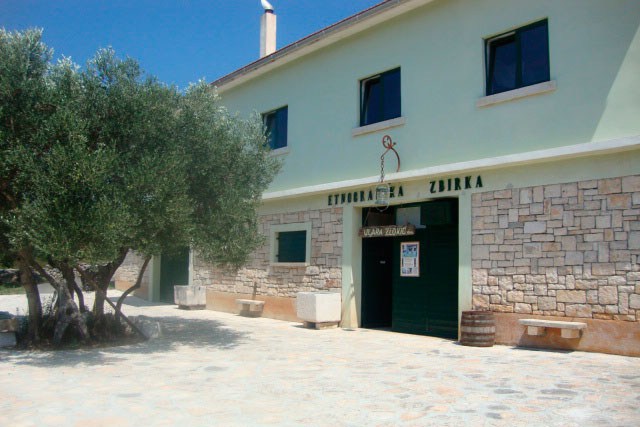
Secret of olive oil quality
– Visitors of oil refinery always ask me which way is better for olive processing: a continuous one or pressing? A condition for obtaining oil’s quality is not in processing system, but in the quality of fruit. If you do not have good, quality olive, you won’t get good, quality oil, and there is no system that can make it up, reveals Mr. Jadran.
The oil quality depends primarily on the healthy fruit, and the percentage of oil obtained from olives depends on the composition of the land, tree age, olive sort and crop. The highest percentage obtained in refinery Zlokic was a high 27%, while 26% was obtained several times. 26% means that 100 kilos of olives will obtain 26 liters of oil. The most common sort of olives on the island of Korcula is ‘’lastovka’’.

– Lastovka is the top sort and it’s very specific. Why specific? Its oil contains lot of polyphenol that protects the oil from oxidation, so two to three years can pass and its substance won’t change. Lastovka’s characteristic is self-pollination and it is very fertile. With all of that this sort gives 25-26 percent of the oil, says Mr. Jadran.
Olives aged in sea
One of the ancient traditions of the island is holding olives in large containers with sea water. This custom originated from the need to conserve the olives as long as it’s possible, because in days of our grandparents and great-grandparents, due to lack of equipment, it took a long time until the olives were processed. Today, according to the regulations of the Ministry, olive fruit should not be allowed to rest in the sea or water, and it is advised to process olives at least 24 to 48 hours after the harvest.

By holding olives in the sea water, the smell and taste of oil is changed and therefore it does not fall into the category of extra-virgin, but the chemical composition of this oil is good. For many families holding olives in sea water is still a customary way of storing them prior to processing.
To check what consumers think, Mr. Jadran often does a small ‘’experiment’’ with the visitors of his ethnographic collection. He usually offers for degustation three different olive oils: first two obtained from the fruit which was immediately processed, and the last one obtained from the fruit seasoned in sea water. Interesting is that 8 of 10 visitors prefer oil of those olives that have spent some time in the sea. Perhaps secret is in their flavor which is less bitter than of those olives that were immediately processed.
– Parameters of the olives which were conserved for some time in sea water are good. Only the taste is little bit different. We say that this oil has “antique” flavor, but it is proper and tasty. – explains Mr. Jadran.
The oil of future
– All plans go toward protecting olive trees from pests, because it is a prerequisite for having an oil in future. In old days there was a rule that you should always have enough oil for three years. It’s obvious that people who claimed that have gone through some troubled times, and there are still years when pests destroy almost entire crop – says the owner of Zlokic refinery.
Meanwhile Mr. Jadran plans to continue to attend an international manifestation of olive oil producers, where he likes to share experiences with friends or olive growers, and to hear some advices from people in the profession. All useful information he will use in his further work because, as he says himself, without technology or professional tips there is no advancement.

